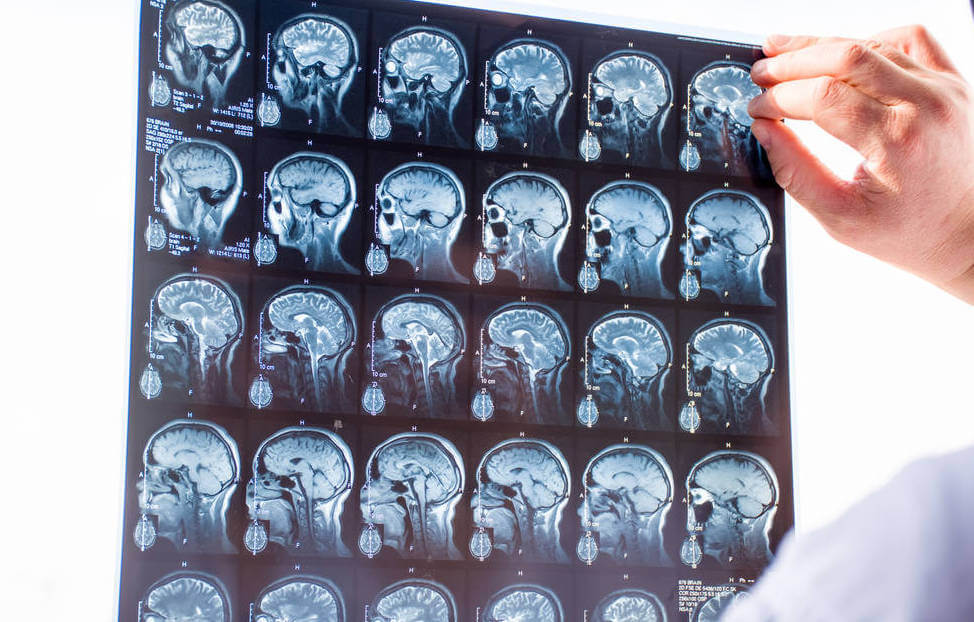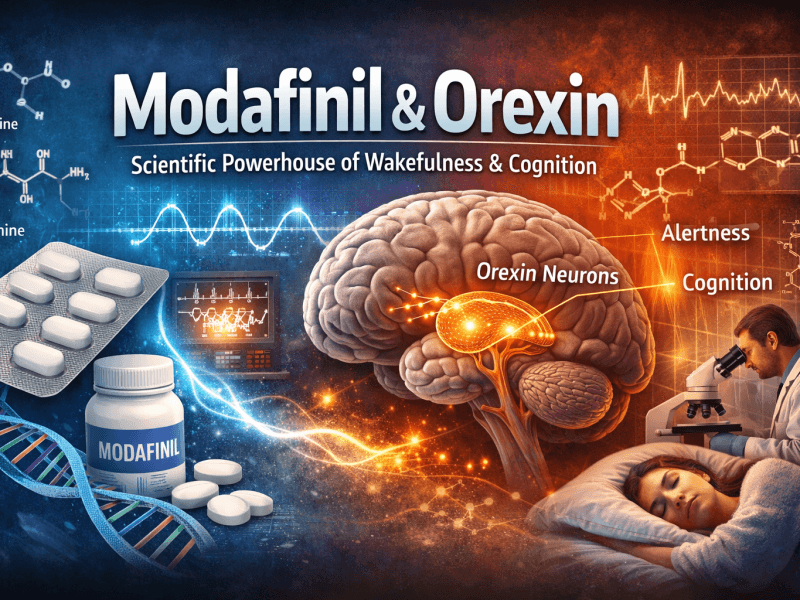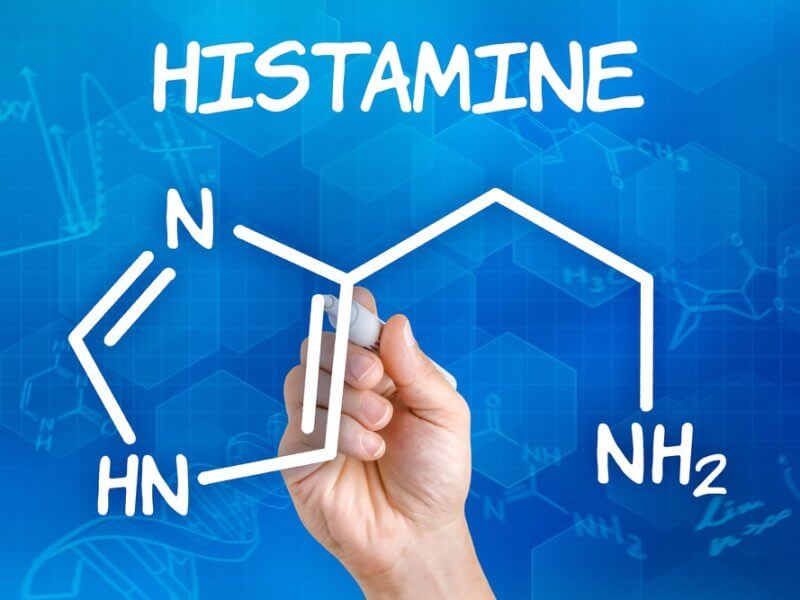Introduction to Traumatic Brain Injury (TBI)
Traumatic brain injury (TBI) affects millions of people each year and can lead to persistent cognitive, emotional, and physical impairments. Often caused by falls, accidents, or violent trauma, TBIs vary from mild concussions to severe brain damage.
Recovery from TBI is complex. Patients often experience difficulties with memory, attention, sleep, and mood all of which drastically affect daily functioning. That’s where pharmacological options like Modafinil are now being explored, especially for their ability to reduce fatigue and enhance cognitive performance.
What is Modafinil?
Modafinil is a prescription medication known primarily for treating narcolepsy, shift work sleep disorder, and obstructive sleep apnea. It works by stimulating the central nervous system and promoting wakefulness.
Chemically, Modafinil affects multiple neurotransmitters, including dopamine, histamine, and orexin all linked to arousal and cognitive control. Unlike traditional stimulants, Modafinil has a lower risk of addiction, making it an attractive candidate for off-label use in neurological rehabilitation, especially in TBI.
Why Consider Modafinil for TBI Recovery?
Neuroprotective Properties of Modafinil
One of Modafinil’s promising features is its neuroprotective potential. Research shows it may reduce oxidative stress and neuroinflammation, two major contributors to brain damage after TBI. These effects could help preserve brain function and facilitate repair.
Enhancing Wakefulness in TBI Patients
Post-TBI fatigue is a leading barrier to recovery. Modafinil’s primary action promoting wakefulness makes it an appealing option for restoring normal sleep-wake cycles, allowing patients to better engage in therapy and daily life.
Modafinil’s Role in Cognitive Rehabilitation
Many TBI patients struggle with executive function, attention, and memory. Modafinil has been shown to enhance cognitive control, working memory, and reaction time in various populations. In the context of TBI, this could accelerate cognitive rehabilitation programs.
Scientific Studies Supporting Modafinil for TBI
Randomized Clinical Trials and Observational Data
Several clinical trials have assessed Modafinil’s impact on TBI patients. A notable study published in the Journal of Neurotrauma found that Modafinil improved attention and reduced daytime sleepiness in moderate to severe TBI patients after just 3 weeks of treatment.
Another observational study showed significant reductions in fatigue and depressive symptoms among veterans with TBI using Modafinil.
Animal Model Studies
Rodent models of TBI have demonstrated that Modafinil enhances neurogenesis, reduces inflammation, and improves performance in maze based cognitive tests a promising indicator for potential human benefits.
Benefits of Modafinil in TBI Recovery
Improved Memory and Focus
Patients with TBI often complain of “brain fog.” Modafinil improves working memory, processing speed, and sustained attention, helping patients regain confidence in their mental abilities.
Reduced Fatigue and Sleep Disturbance
Post-TBI fatigue can be crippling. Studies suggest that Modafinil significantly reduces excessive daytime sleepiness without major side effects, improving overall quality of life.
Enhancing Motivation and Mood
Modafinil has mood-brightening effects and may help combat post-injury apathy or depression, conditions common in TBI recovery. By improving energy levels and focus, it helps patients stay engaged in rehabilitation.
Risks and Side Effects of Using Modafinil
While generally well-tolerated, Modafinil may cause:
- Headaches
- Nausea
- Anxiety
- Insomnia
- Elevated blood pressure
Rare but serious side effects include skin reactions (Stevens-Johnson syndrome) and psychiatric symptoms. As such, it should always be used under medical supervision.
Comparing Modafinil to Other TBI Treatments
| Treatment | Mechanism | Benefits | Drawbacks |
|---|---|---|---|
| Modafinil | CNS stimulant | Focus, fatigue, motivation | Potential insomnia, anxiety |
| Amantadine | Dopaminergic agent | Attention, arousal | Risk of confusion, agitation |
| Methylphenidate | Dopamine/norepinephrine reuptake inhibitor | Attention, alertness | Potential for abuse, rebound |
| Cognitive Therapy | Behavioral | Memory, executive function | Time-intensive, costly |
How Modafinil is Administered for TBI Patients
Modafinil is taken orally, usually once per day in the morning to avoid sleep disruption. It comes in 100 mg and 200 mg pill forms. Some doctors may start with a low dose and titrate up depending on patient response.
Dosage Guidelines and Medical Supervision
Typical off-label dosages for TBI-related fatigue range from 100 mg to 200 mg/day. Regular monitoring for side effects is essential. Medical professionals may perform sleep studies, blood pressure checks, and psychiatric evaluations before and during treatment.
Who Should and Should Not Use Modafinil for TBI?
Ideal Candidates:
- Adults with moderate to severe TBI
- Persistent post-traumatic fatigue
- Poor attention or cognitive function
Avoid in Cases of:
- History of arrhythmia or severe heart disease
- Active psychosis or mania
- Severe hepatic impairment
- Pregnant or breastfeeding women (unless advised by a physician)
FAQ
1. Is Modafinil FDA-approved for TBI?
No, Modafinil is not FDA-approved specifically for TBI, but it is used off-label under physician supervision.
2. How long does it take to see results?
Some patients notice improvements within a few days to a week, especially in fatigue and attention.
3. Can Modafinil replace cognitive therapy?
No. It is best used as an adjunct to therapy, not a replacement.
4. Is Modafinil addictive?
It has a low potential for abuse, especially compared to other stimulants, but caution is still necessary.
5. Will insurance cover Modafinil for TBI?
Not usually, since it’s an off-label use. However, some plans may approve it with prior authorization.
6. Are there alternatives to Modafinil?
Yes. Amantadine, methylphenidate, and non-pharmacological approaches like cognitive-behavioral therapy are also used.
Conclusion
Modafinil offers a promising pharmacological tool in the evolving field of TBI treatment. With its ability to enhance wakefulness, improve cognition, and boost mood, it represents a step forward in supporting those struggling with long-term effects of brain injury.
While more large-scale randomized controlled trials are needed, existing research and clinical experience suggest that Modafinil when used responsibly can significantly enhance recovery outcomes for many TBI patients.
‼️ Disclaimer: The information provided in this article about modafinil is intended for informational purposes only and is not a substitute for professional medical consultation or recommendations. The author of the article are not responsible for any errors, omissions, or actions based on the information provided.
References:
- U.S. Food and Drug Administration. PROVIGIL. U.S. Department of Health and Human Services. https://www.accessdata.fda.gov/drugsatfda_docs/label/2015/020717s037s038lbl.pdf . 2015
- Ballon JS, Feifel D. A systematic review of modafinil: potential clinical uses and mechanisms of action. J Clin Psychiatry. 2006
- Willavize, S. A., Nichols, A. I., & Lee, J. Population pharmacokinetic modeling of armodafinil and its major metabolites. https://doi.org/10.1002/jcph.800 . 2016
- Fuxe K, et al. Modafinil enhances the increase of extracellular serotonin levels induced by the antidepressant drugs fluoxetine and imipramine: a dual probe microdialysis study in awake rat. Synapse. 2005
- Mechanisms of modafinil: A review of current research. nih.gov. 2007
- Woo, J., & Verduzco-Gutierrez, M. Traumatic brain injury: An overview of epidemiology, pathophysiology, and medical management. Medical Clinics of North America. https://doi.org/10.1016/j.mcna.2019.11.001 . 2020
- Oliva Ramirez A, Keenan A, Kalau O, Worthington E, Cohen L, Singh S. Prevalence and burden of multiple sclerosis-related fatigue: a systematic literature review. https://doi.org/10.1186/s12883-021-02396-1 . 2021.
- Ciancio A, Moretti MC, Natale A, Rodolico A, Signorelli MS, Petralia A. Personality Traits and Fatigue in Multiple Sclerosis: A Narrative Review. Journal of Clinical Medicine. https://doi.org/10.3390/jcm12134518 . 2023
- Mereu, M., Bonci, A., Newman, A. H., & Tanda, G. The neurobiology of modafinil as an enhancer of cognitive performance and a potential treatment for substance use disorders. https://doi.org/10.1007/s00213-013-3232-4 . 2013


